Welcome to another issue of The Newport Cornucopia where we dig through the newspapers archives for interesting news articles and adverts. All articles are posted verbatim and most headlines are original (headlines in quotes are my own).

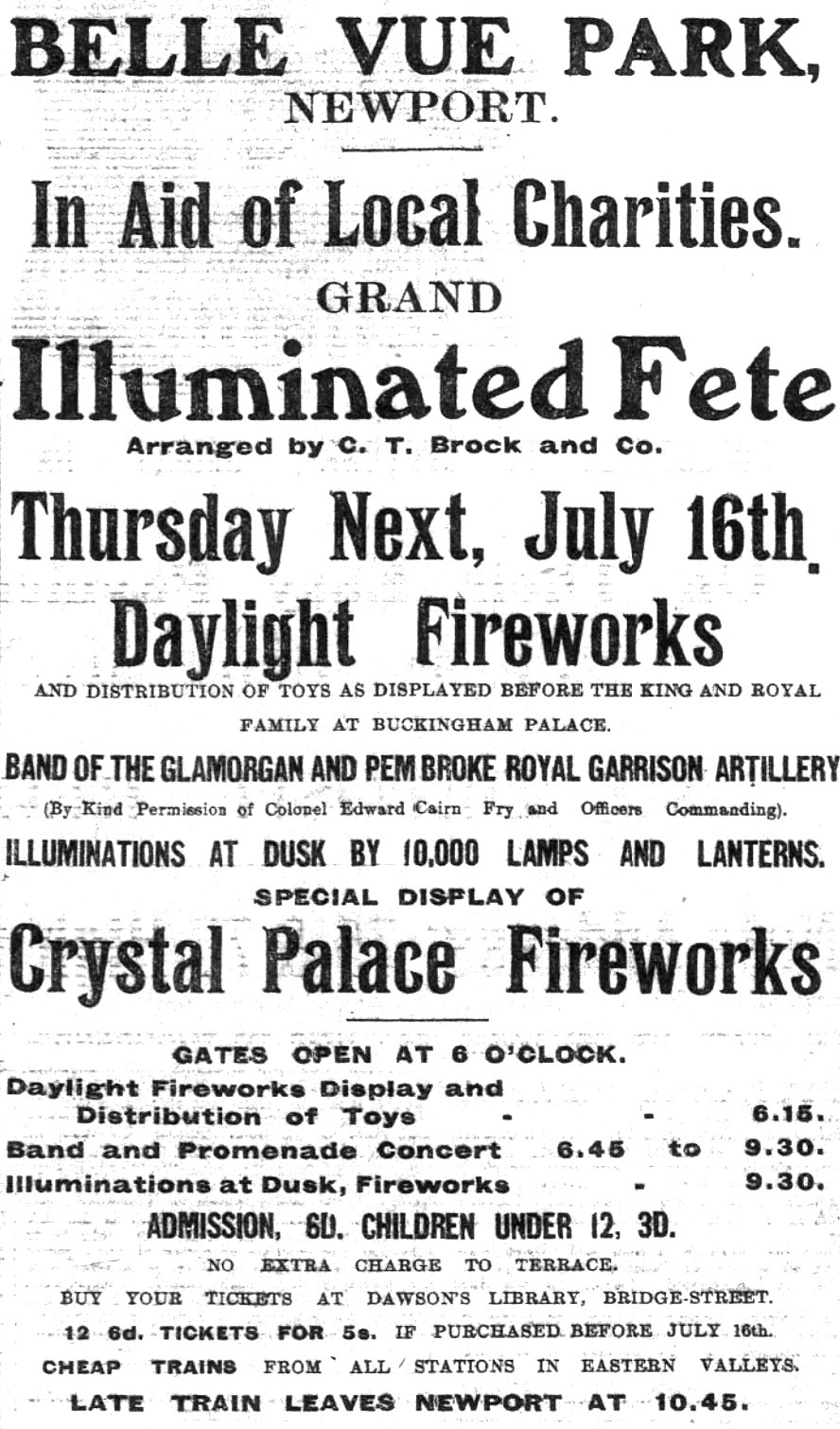
Unwelcome Visitors at Gaer Fach Farm
Owing to the way in which gardens are being robbed, the police in the neighbourhood were instructed to keep a watchful eye on the fruit preserves. Early on Sunday morning four young fellows from Pill after a mushroom expedition ventured into the greenhouse of Mr C.D. Phillips, of Gaer Fach. Having made an atttack upon the grapes, they were about to leave the premises, but were suprised by P.C.'s Jones and Cook, who apprehended them. They were conveyed to the County Police Station, and after their names and addresses had been taken they were released.
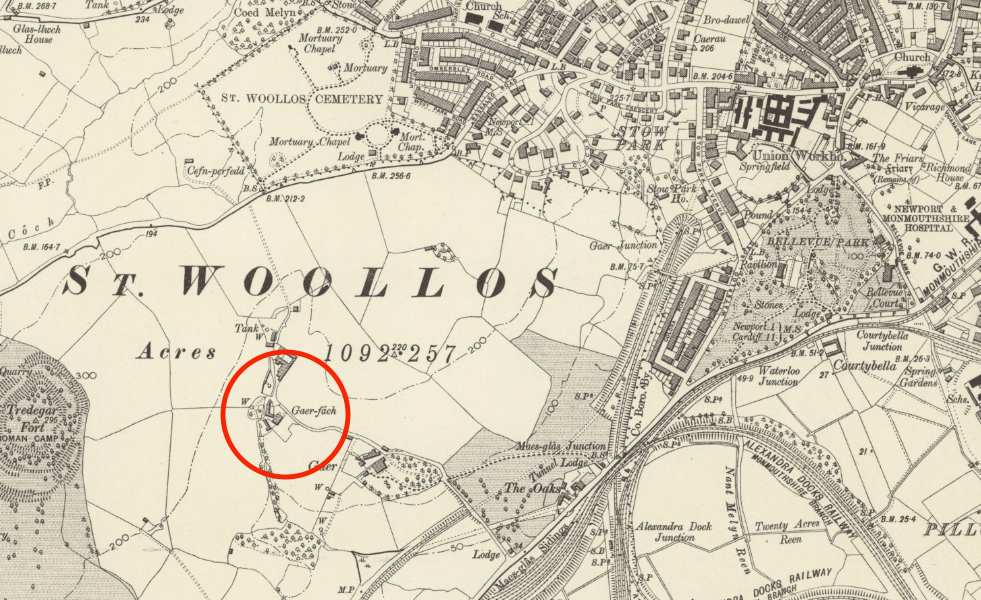
— South Wales Argus, Tuesday 30th July, 1895 (Subscription Required)

Gaer Fach Farm Annual Sale
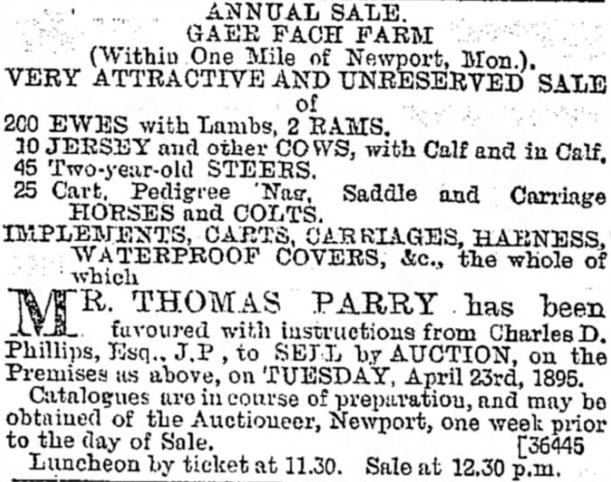
Mr C.D. Phillips' annual sale at Gaer Fach Farm took place to-day in beautiful weather. There was a good attendance of farmers and others from various parts of Monmouthshire and further afield, and the auctioneer (Mr Thomas Parry) had little difficulty in disposing of the different lots, though for the most part prices ruled easy.
Prior to the sale, Mr Phillips entertained the visitors to a capital luncheon. In the implement list, some good bargains were obtained by purchasers. These included several mills by Richmond and Chandler and other well-known makers, chaff-cutters, rollers and ploughs, &c., and the aggregate receipts from some thirty lots amounted to about £70. A large number of iron hurdles realised from 23s 6d to £2 8s per bundle of ten. A four-wheel mail phaeton fetched £14; another sold at £10; a two-wheel pony trap went for £9 10s, a pony size luggage cart was secured for £9; a strong farm cart £6 10s; a dog cart realised £8' a light spring wagon £5 5s; and a strong crank-axle float £5.
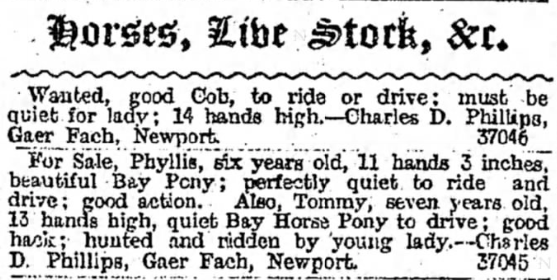
Nineteen pens of sheep, bred by Mr Richard Stratton, were sold in lots of 10 ewes and (varying from) ten to fifteen lambs. These realised from 31s 6d to £2 14s per head per pen. A pure-bred Shropshire Down ram was sold for £2 11s; another went for £2 7s; and a Nanny goat, in kid, went for 10s. The cattle sold briskly. Two prime grey Hereford steers (2 years old) sold for £30; another couple fetched £27 10s. Twenty-one lots of Shorthorn steers, offered in couples, fetched from £20 to £30 per couple. A pure-bred Welsh cow sold for £10 5s; a three-year-old Jersey heifer £15 10s; another Jersey heifer was bought at £13 10s; and a couple of Alderney and Shorthorn cows realised from £10 to £12 each. The horses, as usual, excited keen bidding.
There were twenty-five lots, including some good, useful, attractive specimens of horseflesh.
These fetched from £14 10s for ponies to £46 10s for good, useful cart mares. The sale throuhout was very successful, and the aggregate receipts were over £1,100.
— South Wales Argus, Tuesday 23rd April, 1895 (Subscription Required)

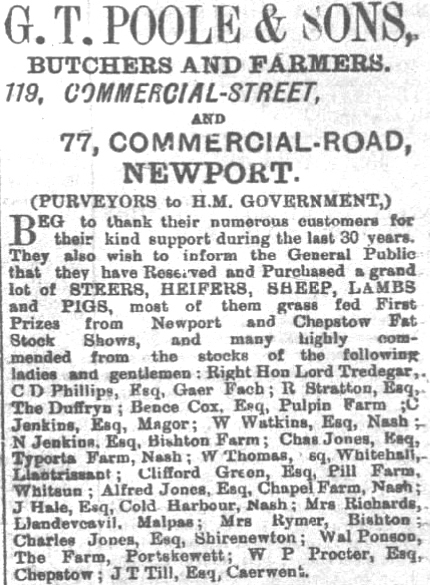


'Stealing a Ladder'
William Friend, with no pretensions to that designation, in garb, speech, or appearance, was charged with stealing Benjamin Jones's ladder. Benjamin is a keeper of cows, and a vendor of milk. He has a small lot of land in the parish of Christchurch, which has the acquisition of a shed, under which, the ladder was kept.
On a certain day, the ladder was wanted but was non est. Search was made for it, and after some time, the Friend was found "in possession." He refused to relinquish his claim to the property, and to-day justified his conduct, in saying "Jones looked at the ladder, and said it wasn't not his'n." Benjamin now grew mystified as to the time of day, the day of the week, or what week it was at all, and "confusion worse confounded" following, the clerk was unable to proceed.
Still Benjamin laboured at the slough of obliviousness, but could neither extricate himself, nor make his dates coherent. It was "Benjamin's mess,: truly, sans the pottage. His son then stepped forward, to make all clear and succeeded in placing something like an intelligible view of the case before the Bench, which enabled the Rev. Mr. Pope to see that although the Friend had no business to take the ladder, it was not exactly a theft which had been committed; and therefore the magistrate dismissed the case for the present, but intimated to Mr. Friend that if a better case could be established against him, he would again be placed at the bar. William assured the Bench "as how he was as hinnercent a unborned babby, and he was serprised as how any feller could a-say as he warn't."
— Monmouthshire Merlin, Saturday 20th January, 1854
"Fancy" v. "Set" Bread
Benjamin Hardie, baker, Pillgwenlly, was charged selling a 9d. loaf, short of weight. The defence was, the loaf was "fancy bread," made to defendant's order and that another loaf, of ordinary bread, was offered complainant, by weight, which was refused. The loaf produced, was made to order, and was "notched." It was never weighable, under the old act, being "crusted three sides round." — Mr. George Baker, rate-collector, said that l loaf in question was not "fancy" bread and he was both a Baker by name and by profession.—Thomas Smith, sworn: I asked defendant for a quartern loaf. He gave me the one produced, and I paid 9d. for it. I asked him to weigh it, two or three times. He would not, saying it was fancy bread. He offered to weigh another, but I would not have it. I weighed it afterwards, at Mr. Stockwell's who is inspector of weights and measures and it was five ounces short.
Defendant: He said to me the I stated that the bakers ought to sell the quartern loaf at 8d. I could not think the Mayor would make such an observation; and certainly the complainant Smith ought to be reprimanded for saying so.
Mr. Thomas, a baker of 14 years' experience, called for the complainant, said the loaf produced was fancy bread; but he informed the Mayor it might also be called household bread. The loaf with defendant was "set" bread, and required to be sold by weight. "Set" bread is weighable; but the other loaf, the "fancy," is not. A baker would not make his money out of the "fancy" bread, it being more crusty. Any one wishing a crusty loaf, must pay for it. The "fancy" bread though put in the oven the same weight as the "set" loaves, would come out a quarter of a pound shorter weight, because of so much crust.
In handing the set loaf about the court, it fell to the ground: when Mr. Evans exclaimed that "it was a good omen — bread was falling." (Laughter.) —After consideration of the case, the Mayor said the Bench had doubts whether the loaf was "fancy" bread or not, and time would be taken to ascertain the fact. Adjourned for a week.
— Monmouthshire Merlin, Saturday 20th January, 1854
'One of the Worst Houses of Ill-Fame'
David Mellon was charged with stealing a cap, the property of John Crews. Sergeant Lloyd said he met the prosecutor in the street at night, who stated that his cap had been stolen from him in a brothel, because he would not "stand" a quart of beer.
Sarah Wilder, in whose house the affair took place, was here put to the bar, charged with selling the beer in her house, without license. She said she had not sold the beer; but the men who were there, sent out for beer. The "cap" charge was here dismissed, and the woman stood charged with selling beer without a license. The late prisoner, Mellon, was put up as a witness against her. He said the money was given to the woman, who got a penny out of each quart, but he did not know where it was fetched from. This was after eleven o'clock; and the woman said she had procured beer before eleven, at the Cambrian beerhouse.
The Mayor severely lectured the woman, as to the improper house she kept, and warned her to mend her ways, or she would get into trouble. Sergeant Lloyd said that although the I had three small children at home, she kept one of the worse I houses of ill-fame in the place.
— Monmouthshire Merlin, Saturday 20th January, 1854

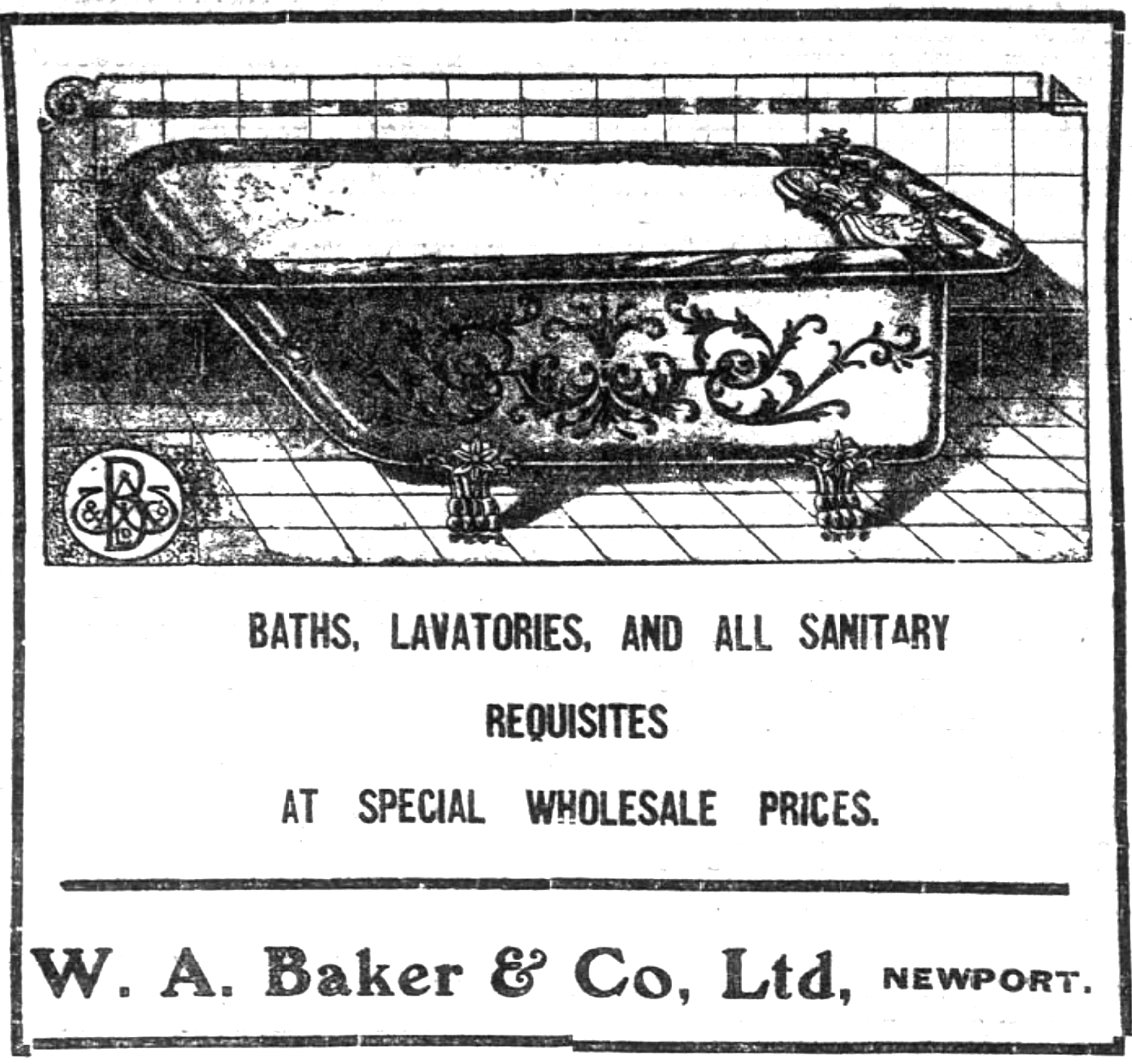

St. Woollos Church-yard
To the Editor of the Monmouthshire Merlin,
Sir,—As a constant reader of your journal, I cannot but have witnessed your readiness at all times to give publicity to well-founded complaints of nuisances and other matters affecting the comfort and well-being of society and I am therefore induced to solicit a space in your columns for a complaint respecting what many residents in the neighbourhood consider an improper burial in St. Woollos's churchyard.
On Monday afternoon last, my attention was directed to a newly-dug grave, close to the left entrance from the country-side into the churchyard, and very contiguous to the residences of many inhabitants. I found that the grave-digger had ended his task, and on examining the open grave, I found that it was only about three feet deep! so that when the coffin was placed in it, the corpse would be within eighteen or twenty inches of the paws of ravenous dogs.
I enquired of the grave-digger the reason of this unseemly mode of interment, when I was edified by the announcement that "it was only a dried up old woman to be buried there, who was too aged to be offensive when putrid!" She had, the grave-digger further informed me, requested to be buried in this grave—upon her family. And so, regardless of the health and safety of the living, the wish of the dead was respected, and the old woman was just covered over with a few inches of earth in this heathenish style.
For my own part, Mr. Editor, being a resident in the locality of the churchyard, I cannot think this mode of interment consistent, judicious, or healthy nor do I think the request of the dead should be so outrageously attended to, to the injury, perhaps, of the living.
I have written the foregoing with no desire to reflect further than deserved, either on the functionaries of the church, or the friends of the deceased. I hope that if the body be not disinterred from the shallow pit—I cannot call it a grave—there will at least be some desire manifested by the authorities to prevent the recurrence of such an outrage on decency and propriety.
Your obedient servant,
A LOOKER-ON
Monday evening, July 31
— Monmouthshire Merlin, Saturday 5th August, 1843

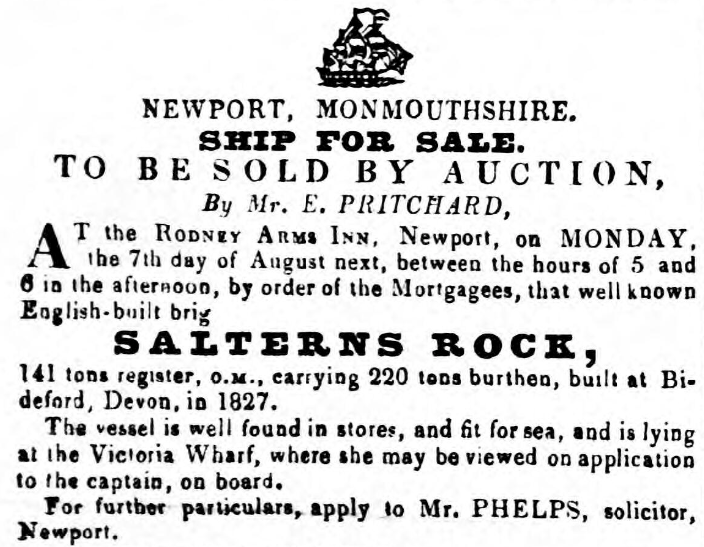

Farms For Sale
An advert in an 1816 edition of The Gloucester Journal listed a number of farms for sale as well as The Maindee house. Some still exist today, others are long gone.
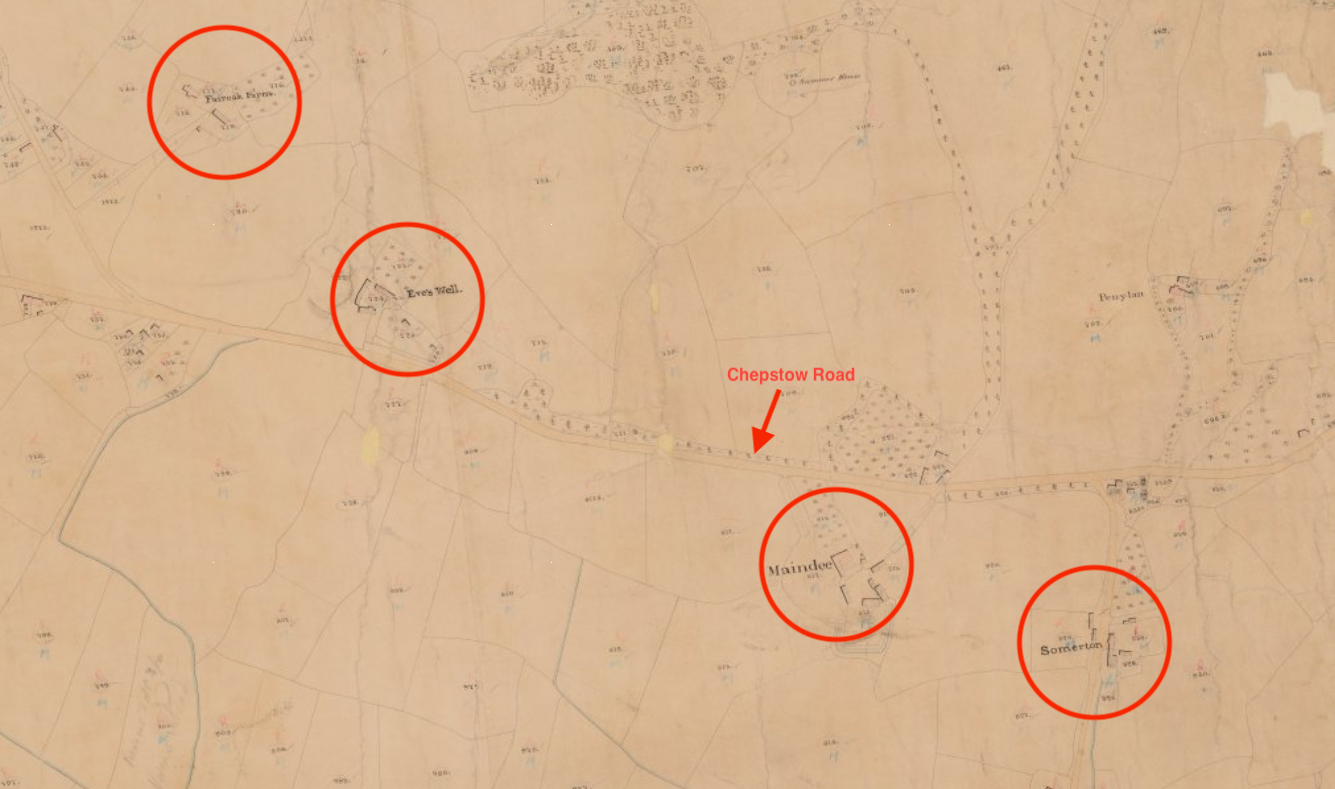
Here are the properties for sale as per the advert.
To be LET, and entered upon at Candlemas next, as to the Lands, and on the 2nd of May next, as to the Houses:- The following ESTATES, in the county of Monmouth.
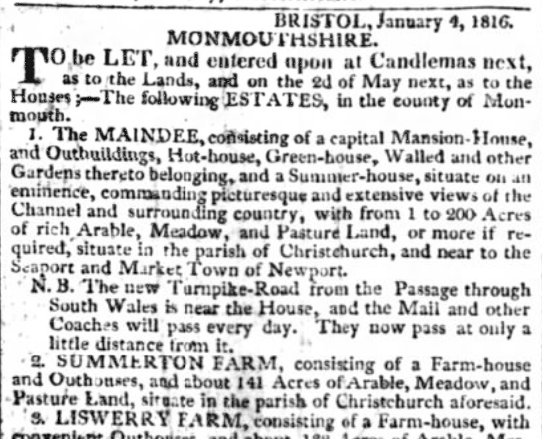
The Maindee
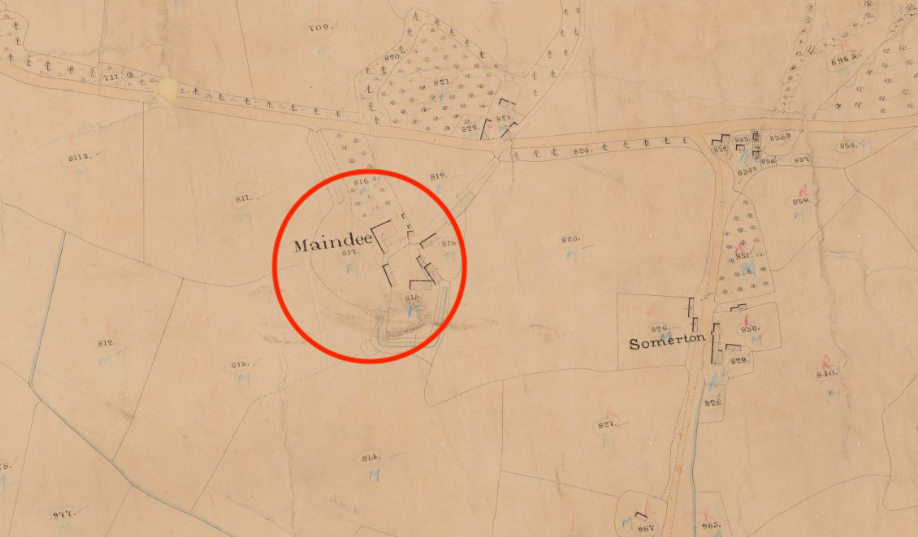
The Maindee, consisting of a capital Mansion-House and Outbuildings, Hot-house, Green-house, Walled and other Gardens thereto belonging, and a Summer-house, situate on an eminence, commanding picturesque and extensive views of the Channel and surrounding country, with from 1 to 200 Acres of rich Arable, Meadow, and Pasture Land, or more if required, situate in the parish of Christchurch, and near to the Seaport and Market Town of newport.
N.B. The new Turnpike-Road from the Passage [the Severn crossing] through South Wales is near the House, and the Mail and other Coaches will pass every day. They now pass only at a little distance from it.
Summerton Farm
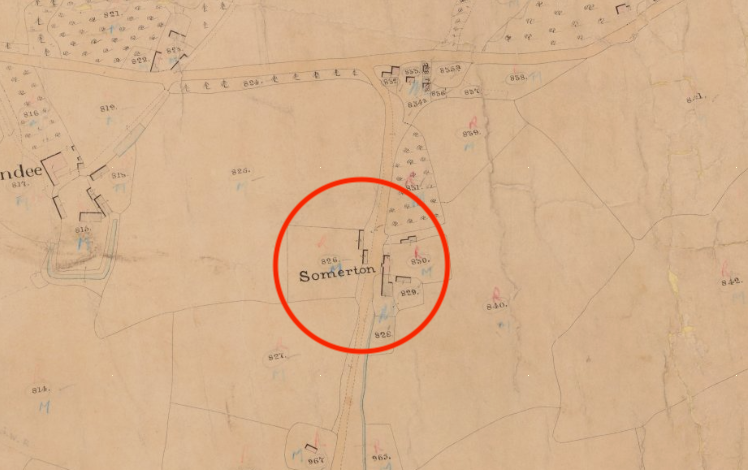
Summerton (sic) Farm, consisting of a Farm-house and Outhouses, and about 141 Acres of Arable, Meadow, and Pasture Land, situate in the parish of Christchurch aforesaid.
Liswerry Farm
Liswerry (sic) Farm, consisting of a Farm-house, with convenient Outhouses, and about 133 Acres of Arable, Meadow and Pasture Land, in the parish of Christchurch aforesaid.
Eve's Well Farm
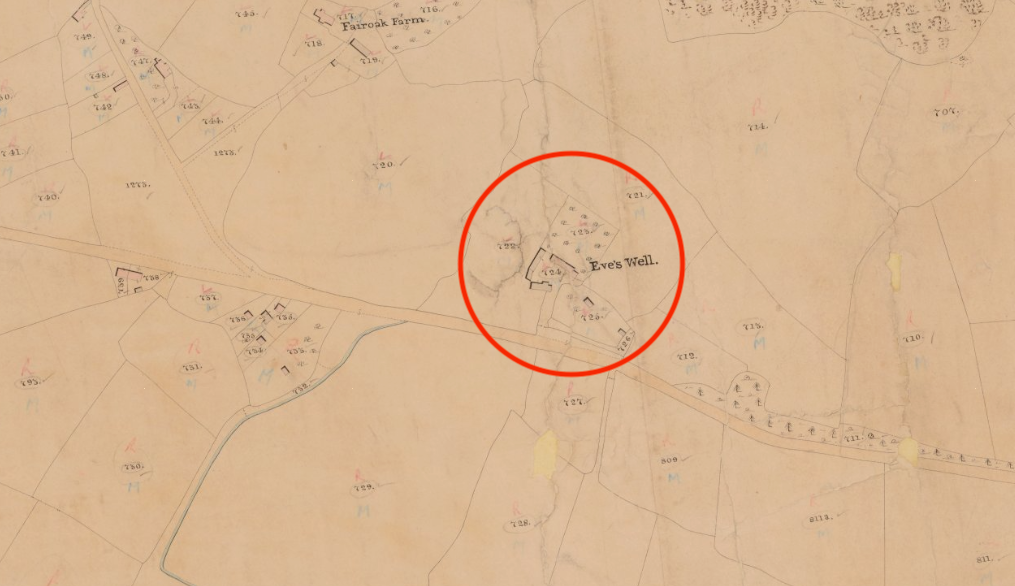
Eve's Well Farm, consisting of about 53 Acres of Meadow and Pasture Land of which may be added, 18 acres of excellent Meadow Land adjoining, if desired by the Tenant, with a good Farm-house, and convenient Outhouses on the Premises, situate in the parish of Christchurch, and about half a mile from Newport aforesaid.
Fair Oak Farm
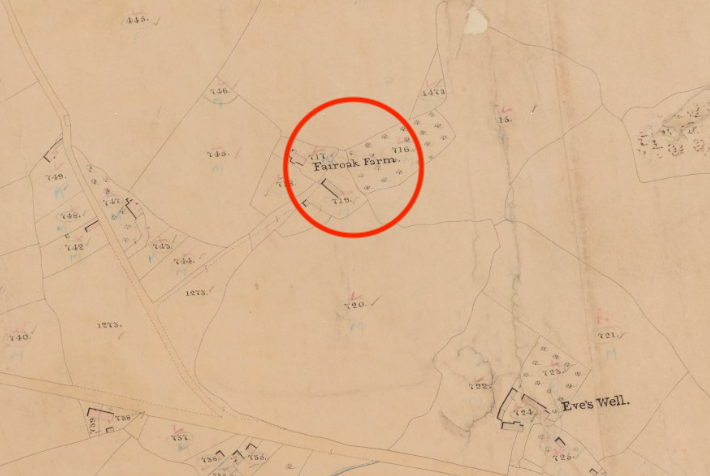
Fair Oak Farm, close to the town of Newport, consisting of a Farm-house and Outhouses, and 65 acres of very rich Meadow and Pasture Land, situate in the parish of Christchurch
Pennyworled Farm
Pennyworled Farm, situate in the parishes of Penhow and Lanvaches, being 8 miles from Chepstow, and the same distance from Newport, consisting of a Farm-house, with convenient Barns and Outhouses, and about 138 Acres of Arable, Meadow, and Pasture Land.
N.B. These two last mentioned Farms adjoin, and may be conveniently Let together, and an excellent Lime-rock and Lime-kiln are on the Premises.
Whitebrook Farm
Whitebrook Farm, situate in the said parish of Lanvaches, having a good Farm-house, thereon, with excellent Outhouses and Barns, and containing, and containing 100 Acres of Arable, Meadow, and Pasture Land.
N.B. The last two mentioned Farms adjoin, and may be conveniently Let together, and an excellent Lime-rock and Lime-kiln are on the Premises.
Carro Hill Farm
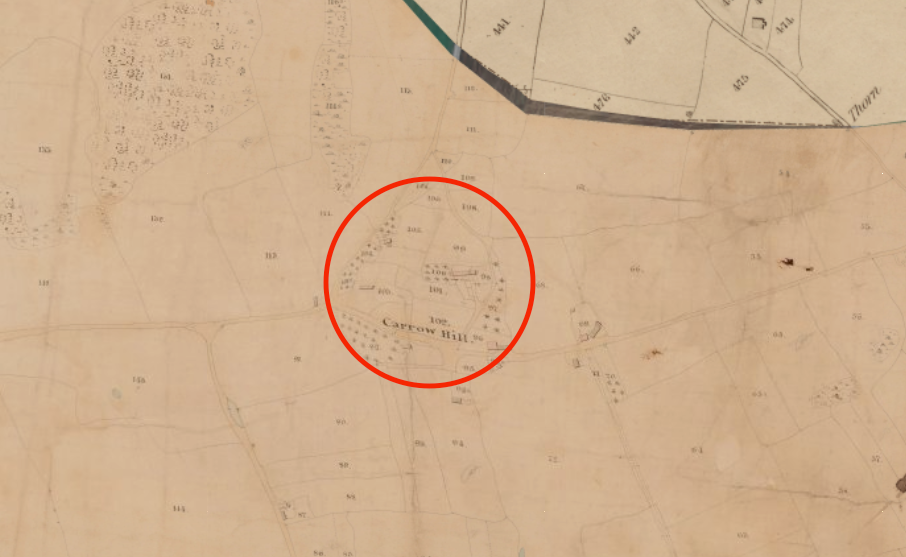
Carro (sic) Hill Farm, in the parishes of St Brides and Magor; consisting of a Farm-house, Barn, and convenient Outhouses, with about 45 Acres of very rich Arable, and 12 Acres of excellent Meadow Land.
Lantrissent Estate
Lantrissent (sic) Estate situate in the parish of Lantrissent, containing 74 Acres of Arable, Meadow, and Pasture Land, very compact and conveniently situated, and having an excellent Farm-house, with Outhouses and Barns.
A Small and Compact Farm in the Parish of Malpas
A small and compact Farm, situate in the parish of Malpas, now in the occupation of Wm. Giles, consisting of a Farm-house and Barn, with about 42 Acres of Arable, Meadow, and Pasture Land.
A Dwelling House and Smith's Shop
A Dwelling-House and Smith's Shop, with about 12 Acres of Pasture Land situate in the parish of St Woollos near the town of Newport, now in the occupation of Watkin Davis.
The Rock and Fountain Inn
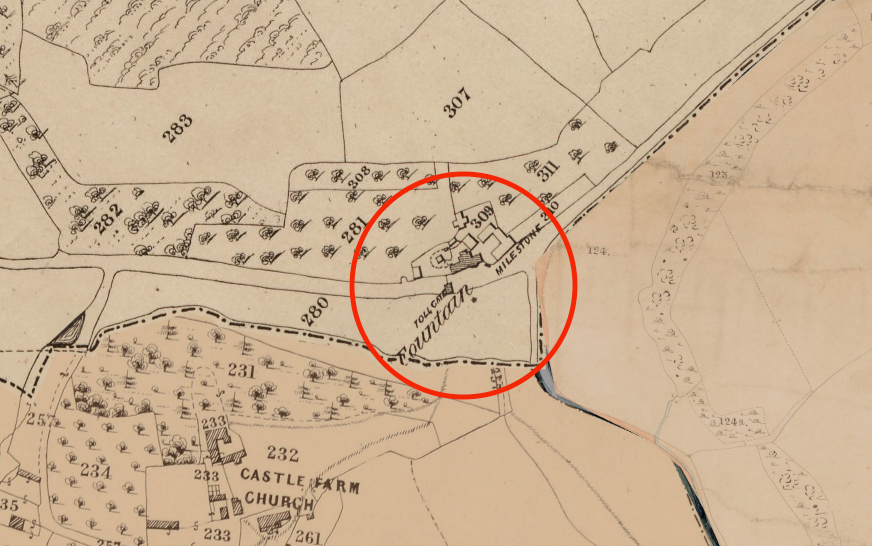
The Rock and Fountain Inn, in the parish of Lanvaches, adjoining the Turnpike-road, 6 miles from the New Passage and from Newport and Chepstow, with 63 Acres of rich, Arable, Meadow and Pasture Land, all adjoining the house.
N.B. The House is well accustomed, and has lately been put into good repair at very considerable expense.
Forty-four Acres of Meadow Land
Forty Acres of Meadow Land, in the parish of Whitson, 13 Acres of Meadow Land, in the parish of Magor, 10 Acres of Meadow Land , in the parish of Redwicke, and 18 Acres of Arable and Pasture Land, in the parish of Lanvaches aforesaid.
— The Gloucester Journal, Monday 15th January, 1861

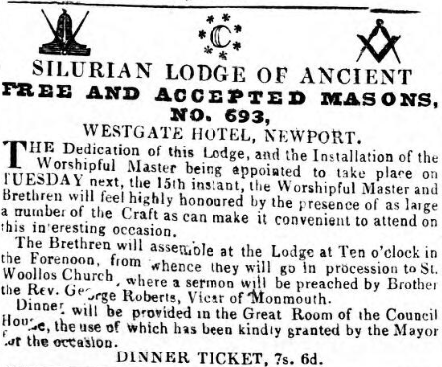
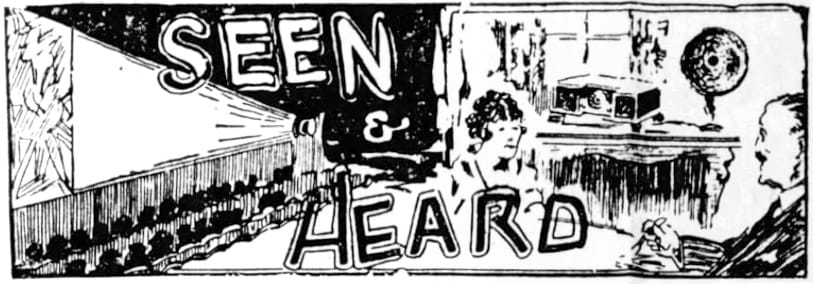
'Bad Language'
The Head Constable of Newport complains, and with good reason, that bad language is far too common in the streets. Anyone who has occasion to be in the side thoroughfares, especially during the evening, will admit the justice of the complains, many of the worst offenders being half-intoxicated women, who care nothing that young children are around them, hearing — and learning — their horrible language. Such as state of things is disgraceful to a civilised community, and if only the magistrates would inflict heavier fines than they do, the police might succeed in checking the abuse.
— South Wales Argus, Saturday 7th October, 1899 (Subscription Required)
'A Lost Dog'
As a proof of the general opinion as to the efficacy of advertising in the Argus I may mention that the other day a gentleman entered the advertisement office, wrote out an advertisement for his lost dog, paid for it, and prepared to depart, feeling satisfied that he had done all that it was possible to do. And he opened the office door, the dog walked in. "Dromie" said it was a case of mental telepathy, the Argus advertisement manager said that the dog had come to advertise for his master.
— South Wales Argus, Saturday 7th October, 1899 (Subscription Required)
'Faster Rail Route to London'
I am glad to see that the Great Western Railway have decided to open a new route, which will bring Newport easily within two hours and a half of London. The line, it is is stated, will be ready in 1901. The short cut is from Wootton Bassett station beyond Swindon to Patchway. This will afford a direct line from London to Bath, Bristol and South Wales, the heavy Mox "bank" being avoided. The distance saved by this route will be about fifteen miles, Newport being brought within 130 miles of London.
— South Wales Argus, Saturday 7th October, 1899 (Subscription Required)

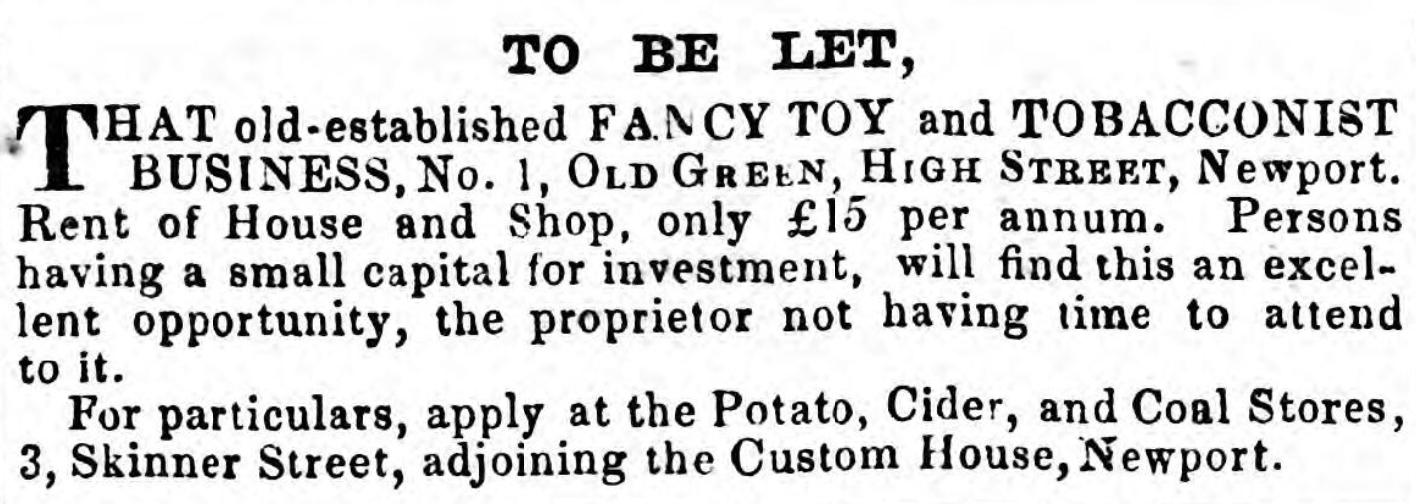
Tree Guards on the Cardiff-Road
At a council meeting...
Mr Mordey referred to the contract for Tree Guards on the Cardiff-Road and said every tree had been cut.
Alderman Huzzey: This is so — it's a shame.
Mr Mordey said it had been done by some evil-disposed men or boys, and he would like to know whether they could not do something in the matter.
The Borough surveyor said the trees were being watched night and day, and they expected the guards in the course of a week or so.
— South Wales Weekly Argus, Saturday 14th April, 1894 (Subscription Required)

'Iron Fencing Around Belle Vue Park'
At a meeting of the parks committee...
Sub-committee recommended the appointment of Mr George Jones (permanent clerk of the works) as clerk of the works at the Park, and that notice be given to the present clerk. Mr Edward Whittey had been appointed superintendent of the Park, to occupy the Cardiff-road Lodge, at 30s per week.
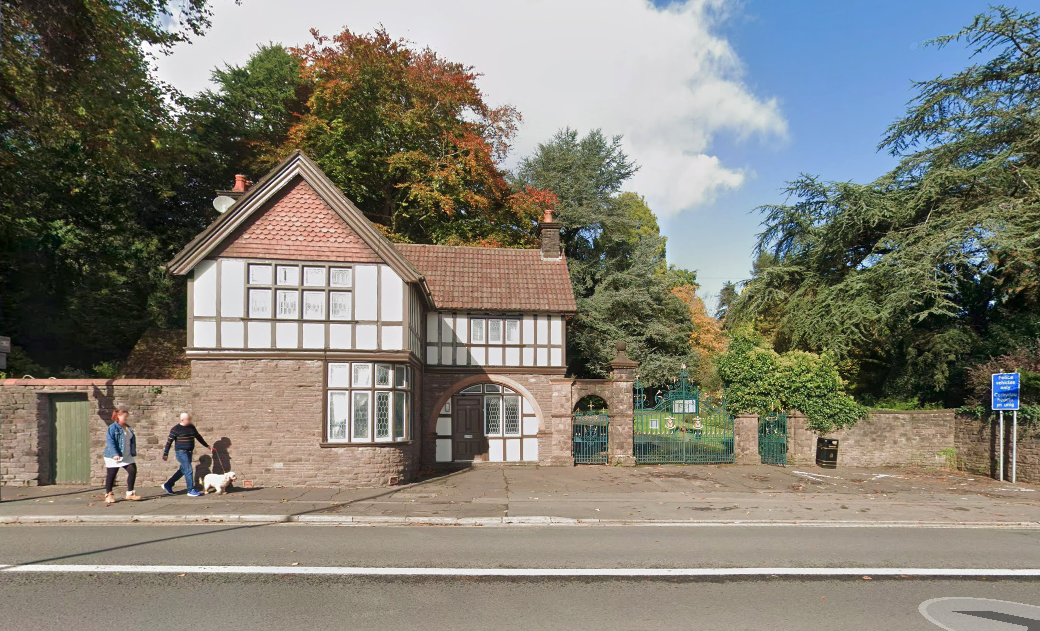
Messrs. W.A. Baker and Co.'s tender for iron fencing in Belle Vue Lane had been accepted at 7s 9d per yard, including fixing, and that of Messrs. W. Edwards and Co. for garden tools at £35 4s 8d.
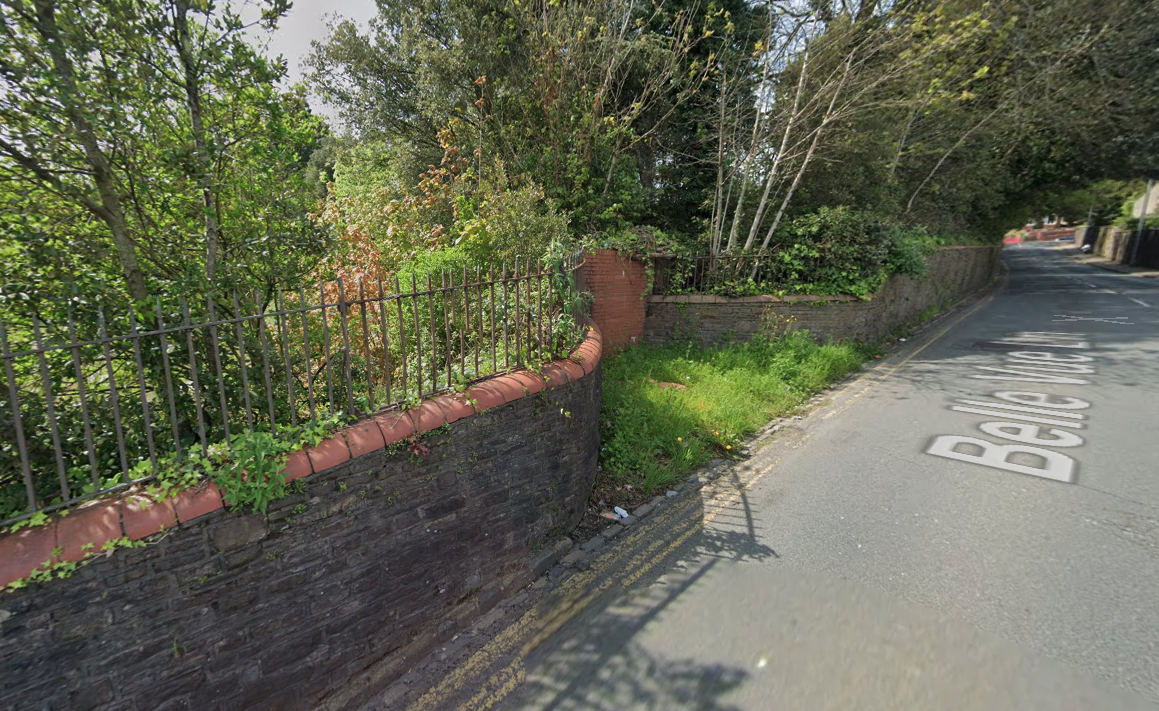
— South Wales Weekly Argus, Saturday 14th April, 1894 (Subscription Required)


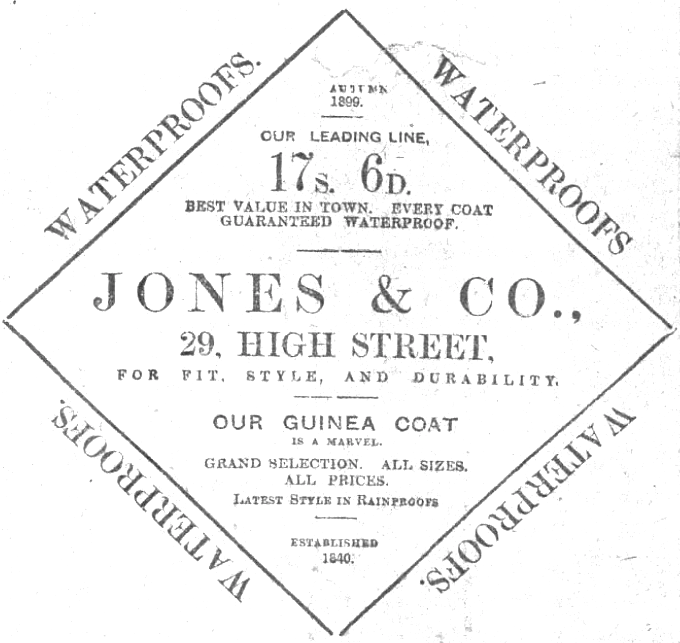
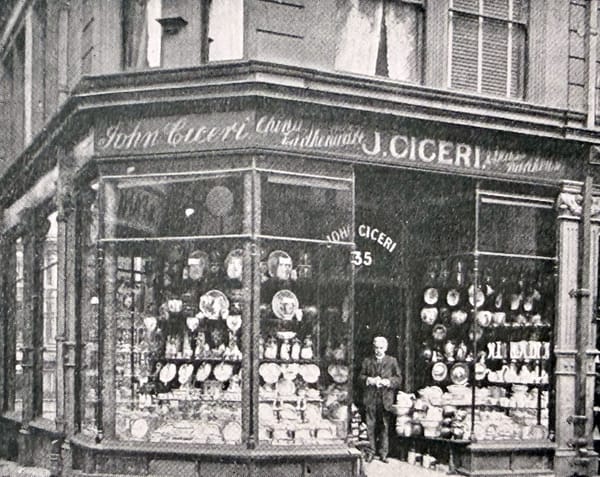
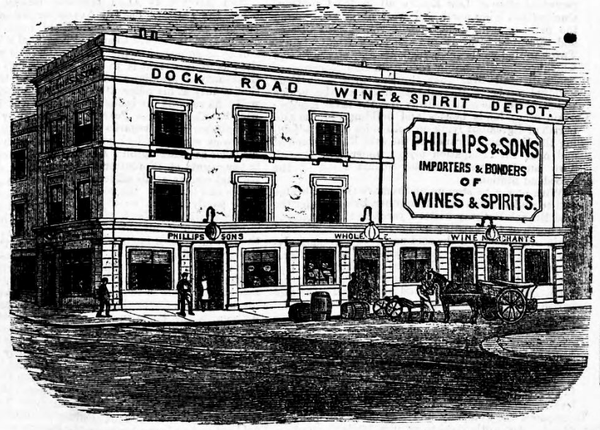
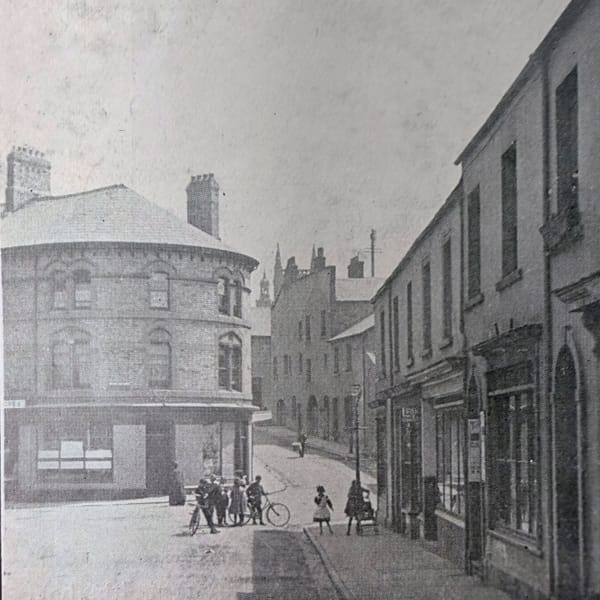
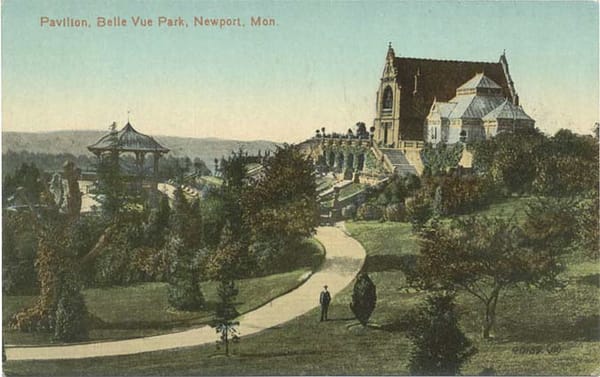
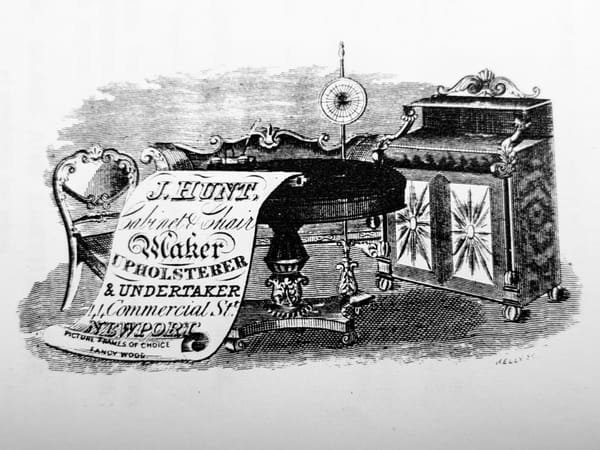
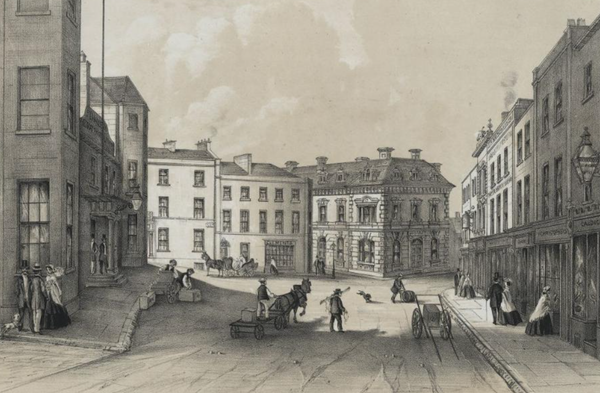
Member discussion